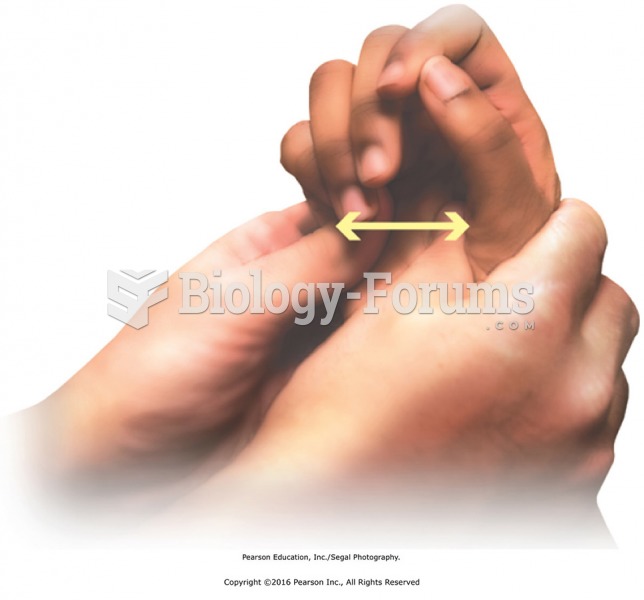|
|
|
Cyanide works by making the human body unable to use oxygen.
The immune system needs 9.5 hours of sleep in total darkness to recharge completely.
The most dangerous mercury compound, dimethyl mercury, is so toxic that even a few microliters spilled on the skin can cause death. Mercury has been shown to accumulate in higher amounts in the following types of fish than other types: swordfish, shark, mackerel, tilefish, crab, and tuna.
Aspirin is the most widely used drug in the world. It has even been recognized as such by the Guinness Book of World Records.
Only 12 hours after an egg cell is fertilized by a sperm cell, the egg cell starts to divide. As it continues to divide, it moves along the fallopian tube toward the uterus at about 1 inch per day.







